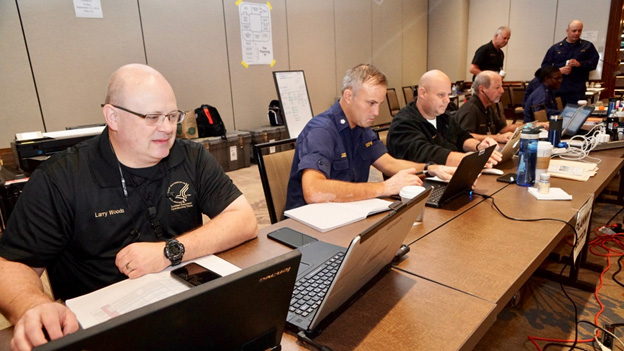The key components of the Framework are grouped under four major organizing categories: Oversight and Policy, Incident Support, Incident Management, and HHS Operation Divisions and Staff Divisions.

- Oversight and Policy: The Assistant Secretary for Preparedness and Response maintains overall responsibility and accountability for all HHS/ASPR incident support and incident management activities. The Assistant Secretary designates the Federal Health Coordinating Officer (FHCO); provides ongoing guidance regarding the goals, objectives, and key strategies and activities in support of the overall incident response; and engages state, local, territorial and tribal (SLTT) public and private sector partners, the Disaster Leadership Group (DLG), and the Administration as needed to resolves critical issues not solvable in the field. ASPR’s Senior Leadership Team provides advice and recommendations regarding response strategy and policy and facilitates the implementation and monitoring of decisions made by the ASPR. The ASPR may convene the DLG when incident or event conditions are expected to raise significant policy issues throughout the U.S. government.
- Incident Support: HHS and ASPR headquarters elements – including the Secretary’s Operations Center, ASPR’s Director of Emergency Management and Medical Operations, and ESF 8 Support Teams assigned to the National Response Coordination Center or other national-level operations centers – provide incident support services through the coordination of all resources (including personnel, equipment, supplies, and information technology systems) that support incident response, recovery, logistics, and mitigation. This Incident Support Team also provides strategic situational awareness to the Department’s senior leadership and other U.S. government leadership, as directed.
- Incident Management: HHS/ASPR field elements, specifically the FHCO and the Incident Management Team (IMT), are responsible for localized management of the federal public health and medical response. The primary focus of the IMT is to identify and validate SLTT priority unmet public health and medical needs and initiate appropriate planning, coordination, and delivery of resources to meet those needs. Note that an IMT Advance Team may be activated and deployed prior to the onset of a noticed event (i.e. a hurricane or major flood event, etc.) if there is sufficient time and warning to permit a comprehensive situational assessment.
- OpDiv/StaffDiv Support: HHS OpDivs and StaffDivs perform a variety of day-to-day roles/responsibilities with direct relevance to emergency operations. Many have regional representatives in place who routinely coordinate a variety of plans and activities with SLTT officials. These divisions have the authority to deploy personnel to conduct the work of their agency in response/recovery operations.


